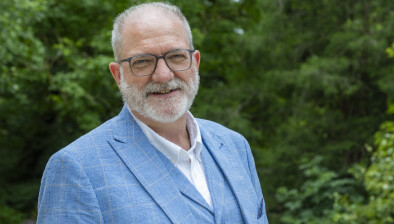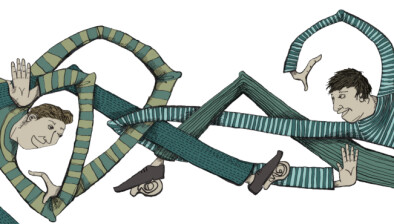Family conflict still largest factor in youth homelessness, poll reveals

A fifth of young Scots experience such intense conflict at home that they think about leaving without somewhere to go at least once a month, a national survey has revealed.
Cyrenians Scottish Centre for Conflict Resolution (SCCR) will share the results with an invited audience of politicians, funders, supporters and young people at an event to be addressed by housing minister Paul MacLennan MSP.
On Monday, 19 June, SCCR will host a reception at Edinburgh City Chambers, where they will share work aimed at reducing levels of youth homelessness in Scotland.
Relationship breakdown remains the primary cause of youth homelessness. Five thousand young Scots present as homeless each year, the equivalent of five high schools full of young people finding themselves without a home.
The reception launches the new report Transforming Conflict: Improving Lives. It summarises the work of the SCCR, which is grounded in early intervention, mediation and conflict resolution, and which strengthens family bonds through resources and events where families can learn to de-escalate arguments before they become so serious that young people start thinking of leaving home.
The report includes the results of a national survey of young people, their parents and carers, and the professionals who work with families in conflict. The survey of 378 people found:
- 19% of young people have thought about leaving home due to arguments at least on a monthly basis.
- 39% of young people and 62% of parents say that conflict at home happens at least weekly.
- 11% of young people have left home or have been asked to leave because of family arguments.
- 86% of parents / carers would find it helpful to deal with or manage family arguments better, with 68% of young people also agreeing.
- SCCR asked respondents what family arguments most negatively impacted on. The top three responses were: mental health and wellbeing; confidence; relationships.
The survey gave respondents the opportunity to comment, providing a qualitative aspect to mirror the survey’s quantitative findings.
Comments collected include:
Young person on thinking about leaving home, despite having nowhere to go: “I’ve had disagreements with my parents [so] that I’ve wanted to move out and just have my own place. It’s annoying to be treated like a child and then expected to act like an adult.”
Parent / carer on whether anyone within the family home had been asked to leave because of conflict: “Just recently I have been threatening my daughter with her having to leave home if she doesn’t try to change her behaviour… I am at breaking point. I daydream daily about running away.”
Parents / carers on whether it would help to feel better supported in family relationships: “I often wish we had someone else in the house (other than just me and my daughter) who could act as referee.”
Young Person on whether it would be useful to deal with family arguments better: “I feel if the issues are addressed in a much more mature manner, things are gonna get resolved quicker.”
The national survey also reveals the extent to which Covid continues to impact on families’ ability to manage conflict. Of the people who responded to the poll, 54% of young people and 70% of parents / carers felt their mental health had been negatively affected by the Covid-19 pandemic.
One young person said: “My mental health got much worse over the lockdown that I now have really bad anxiety and depression.”
A parent/carer added: “Heightened stress and isolation impacted on us. The more stressed I am, the less well I deal with any conflict with my daughter.”
SCCR continues to plan to tackle youth homelessness by:
- working with local authorities to deliver events and resources for young people as part of the Curriculum for Excellence (Health and Wellbeing) ensuring that whatever a young person has experienced, Adverse Childhood Experiences (ACEs) and trauma are understood.
- embedding the United Nations Convention on the Rights of the Child (UNCRC) in its work through involving more young people in SCCR’s design and delivery.
- continuing its strategic, lifetime approach to improving mental health, in line with the Scottish Government’s Mental Health Strategy 2017-2027.
- working with partners on digital platforms with multimedia content and psychoeducational resources that share SCCR’s experience of developing innovative digital delivery.
Diane Marr, senior manager damilies, said: “SCCR intends to deliver and establish a continuing legacy that encourages and enables young people, parents, carers and professionals to address conflict and increase their knowledge, understanding and life-skills to create healthy, safe and loving relationships.
“With collaboration at the heart of what the SCCR does, we’re calling on other organisations to join us in creating a more resilient society in which young Scots have the opportunity and space to reach their full potential within a safe and supportive home environment.”







